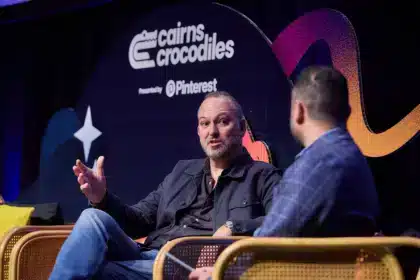In this guest column, Nick Chowdrey (pictured below), content and PR manager at international travel marketing agency In Marketing We Trust, takes a look at how the Google algorithm is built to boost results for current events and how you can use it to your advantage…
In the business of digital marketing we can get so caught up in our sterile world of ‘prospects’, ‘engagements’ and ‘conversions’ that we often forget we’re dealing with real people in unpredictable situations.
The great struggle of inbound marketing is to accurately predict and control the behaviours of our customers and clients. The simple fact is that we’ll never 100 per cent achieve this: the hoverboard might be the hottest new Christmas gift for 2015, but will just as quickly fall from grace by the time several have exploded over summer.
When world events occur beyond our control, how does this affect search? How is the Google algorithm designed to process these events, and how can we take advantage of this as search marketers?
Taking a look at travel insurance
If there’s one industry that truly thrives on unpredictability, it’s insurance. You’re essentially entering a bet with a private company that something awful and unexpected is going to happen to you. As a result, real world events have a huge effect on search demand for insurance.
The agency I work for recently conducted in-depth research into how Australians search for travel insurance. We looked at how two major global events – one positive, one negative – affected search of insurance for the respective countries.
As you can clearly see from the chart above, searches for ‘travel insurance France’ dropped significantly following the Paris attacks on the 13th of November. This bucks the year-on-year trend, as this significant a drop at this time had not occurred for almost 10 years.
Positive events can also clearly affect short term trends. The 2016 Rio Olympics clearly impacted searches for travel insurance, with worldwide searches for ‘travel insurance Rio’ skyrocketing to coincide with the Olympic games.
The effect that real world events have on search is clear – but how does Google respond to huge boosts in search demand?
How Google responds to trends
On June 17, Google’s algorithm suffered a huge jolt with a mysterious update that Google said was a routine, non-major change. They said it wasn’t related to Panda, Penguin, or HTTPS and wouldn’t comment further.
Searchmetrics ran an analysis and found that changes had been made to how sites rank for trending keywords and hot topics. They found that big media sites regularly producing fresh and newsworthy content were benefiting the most, so they named the update “News-Wave”.
It’s theorised that Google is now using data from the Twitter firehose, which it gained access to in March 2015, to help determine which topics are trending. The update also coincided with a Google Trends re release, which now allows users to access real time search data. This is likely also being used by Google to determine rankings for trending topics.
The keywords most affected are from the ‘shorthead’ – short, information based keywords that are either one or two words long, such as “Rio olympics” or “Paris attacks”.
How to ride the wave
It’s important to note that keywords that are usually unrelated to news can become newsworthy – and hence boosted in the SERPs – when something newsworthy happens around that related topic. For example, hoverboards were just some gimmick before they started exploding.
This gives search marketers a chance to gain a temporary boost in organic visibility, if they’re quick off the mark. Here are a few tips on how to do this:
- Constantly monitor your niche for trending topics using Google Trends and social listening tools
- When you spot a trend identify which keyword to target by analysing Google Trends real time data and Twitter hashtags
- Be as quick as possible to publish and promote content on the subject
- Involve influencers in any content you produce to increase authority and reach
- Once published, further boost the authority of your content through link building, content seeding and paid promotion (especially on Twitter)
- Continue producing and promoting as much content as you can as the situation develops – this ensures maximum visibility











